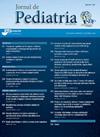在青春期,同意的能力与拒绝治疗和程序的能力不同吗?
IF 2.5
4区 医学
Q1 PEDIATRICS
引用次数: 0
摘要
目的:本文的目的是扩大对构成青少年保健决策能力的因素的讨论,确保青少年被认为有能力拒绝治疗或程序。来源:分析了来自不同来源的材料,包括来自知名数据库的文章和政府机构的文件,形成了一个有目的地选择的样本。研究分两个阶段进行:文献选择和反思分析,然后是一份报告。讨论是从现象学的角度进行的,并根据人权原则进行了反思。调查结果总结:医疗保健决策能力必须足够强大,以允许青少年拒绝治疗或程序。必须尊重有能力的青少年拒绝治疗和程序的权利。保护青少年患者的脆弱性包括尊重他们日益增长的自主权。关于青少年拒绝治疗和手术的实地研究数据很少,这限制了所提议讨论的范围。结论:不能争辩说,青少年应该有不同的能力来拒绝治疗或程序,而不是那些需要给予同意的人。这些技能的重要性似乎在不同的情况下有所不同。有必要考虑到对健康的潜在危害,这说明存在这种差异是合理的,尽管可能有人认为,对健康的损害应该是围绕决策进行的生物伦理审议的一部分,而不是评估决策能力的一个因素。本文章由计算机程序翻译,如有差异,请以英文原文为准。
Is the capacity to consent different from the capacity to refuse treatments and procedures in adolescence?
Objective
The objective of this article is to broaden the discussion on the factors that constitute adolescent healthcare decisional capacity, ensuring that adolescents are recognized as capable of refusing treatments or procedures.
Sources
Materials from different sources were analyzed, including articles from reputable databases and documents from government agencies, forming a purposefully selected sample. The research was conducted in two phases: document selection and reflective analysis, followed by a report. The discussion was approached from a phenomenological perspective, with reflections grounded in human rights principles.
Summary of the findings
Healthcare decisional capacity must be sufficiently robust to allow adolescents to refuse treatments or procedures. It is essential to respect the right of capable adolescents to refuse treatments and procedures. Protecting the vulnerability of adolescent patients involves honoring their growing autonomy. Data from field research regarding the refusal of treatments and procedures in adolescence are scarce, which limits the scope of the proposed discussion.
Conclusions
It cannot be argued that adolescents should have different abilities to refuse a treatment or procedure compared to those required to give consent. The importance of these skills seems to vary between these situations. This difference is justified by the need to consider potential harm to health, even though it could be argued that damage to health should be part of the bioethical deliberation surrounding the decision, rather than a factor in the assessment of decisional capacity.
求助全文
通过发布文献求助,成功后即可免费获取论文全文。
去求助
来源期刊

Jornal de pediatria
医学-小儿科
CiteScore
5.60
自引率
3.00%
发文量
93
审稿时长
43 days
期刊介绍:
Jornal de Pediatria is a bimonthly publication of the Brazilian Society of Pediatrics (Sociedade Brasileira de Pediatria, SBP). It has been published without interruption since 1934. Jornal de Pediatria publishes original articles and review articles covering various areas in the field of pediatrics. By publishing relevant scientific contributions, Jornal de Pediatria aims at improving the standards of pediatrics and of the healthcare provided for children and adolescents in general, as well to foster debate about health.
 求助内容:
求助内容: 应助结果提醒方式:
应助结果提醒方式:


